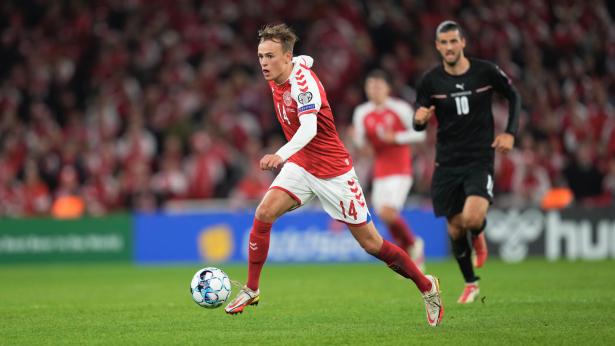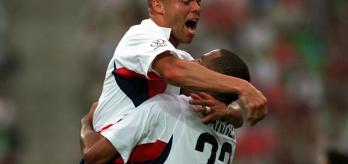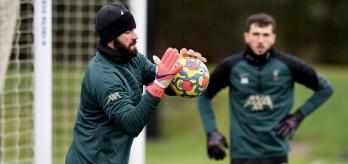Danish recipe for maximising talent
Denmark is a classic example of how small can be beautiful in internal football. Despite a population of less than six million, their international record compares favourably with many bigger nations, and Danish players can be found in all the major European domestic leagues.
A clear playing philosophy, emphasis on coach education and a well-organised youth system have all contributed to Denmark’s success, making it an example of how smaller countries can achieve FIFA Chief of Global Football Development Arsene Wenger’s aim of giving every talent a chance. Most important of all are the transparency and close relationships that exist between the Danish Football Association (DBU) and the clubs and the leagues, particularly when it comes to player development.
Denmark was one of 205 member associations that took part in a ground-breaking global survey on the development of talent as part of Wenger’s programme, with separate reports produced for each country.
Environment-orientated approach
Hesterine de Reus, the FIFA Technical Expert who worked with the DBU on the report, says they found much to admire:
"I think that we cannot copy and paste things, but I think they have excellent examples; how, as a small nation, you can use resources, how you can be creative and how you can create an environment where every talent can reach their goals, their potential," she says.
"It’s a small football nation, but they perform really well on an international stage, so that makes them a really interesting federation."
Denmark's success, she says, starts at grassroots level, where children are given ample opportunities to play, starting from nursery school age.
But where Denmark really stands out is the relationship between the DBU, the leagues and the clubs when it comes to developing talent.
The league's head of talent development plays a key role in player development and there is a strong collaboration with the DBU’s Elite Department, based on a clear shared strategy.
There is also systematic collaboration between the DBU and first and second tier clubs via six Talent Coaches, each of whom maintains links to a number of clubs.
Youth competitions in Denmark focus on creating an environment that promotes development rather than taking a results-orientated approach. Denmark's youth football licensing system, which is reviewed and improved on an annual basis, ranks clubs on the basis of their development environment, not their results on the pitch. A stars-based system is used to rank the overall quality of clubs, and the boys’ clubs with the highest star ratings participate in the U-19, U-17 and U-15 Elite leagues.
"They are ranked by how they create the environment. So, the ones that have the best environments are top-ranked clubs, and then it goes down like that. I think that’s excellent at the youth level," said De Reus.

A continuous process
Flemming Berg, the DBU's Talent Development manager, says the current process began in 2008.
"We have had a pretty clear playing and development philosophy since then, and we created a licence system together with the clubs as well," he says.
"Denmark is playing the way that Danish people are, you know: it’s innovative, it’s creative; the football should really reflect the way you are as a people, and that’s what we are doing now.
"We actually see it as an advantage that we’re a small country because it also means that it’s not a big, big, big ship that has to be turned around, we can navigate it.”
Berg was confident that Denmark would continue to unearth new talent and would not suffer the kinds of dips they experienced when they failed to qualify for the 2006 FIFA World Cup and 2008 UEFA EURO.
"We have not just one generation but so many good young players coming through now that (so) it will not just be short-term success," he says. "We have many good years to come."
Even so, the report found areas in which Denmark could do better. It said there was a big gap between the highest-level age group competitions and senior level in both the men's and women's game, while facilities for national teams were merely average. It also found challenges for the women's game, where the club environment failed to meet the required standards. It suggested looking at the possibility of making the women's game professional.
Berg says that the DBU has already recognised some of the problems and that the report would help put new ideas into practice, because it backs up its observations with data. "I like ‘give every talent a chance’. I really like the approach to that because it’s a global approach,” he says. “And now I’m not just talking about the DBU here but in general; I like the global approach to that.
“It’s a big, big ambition, but it’s really admirable."









